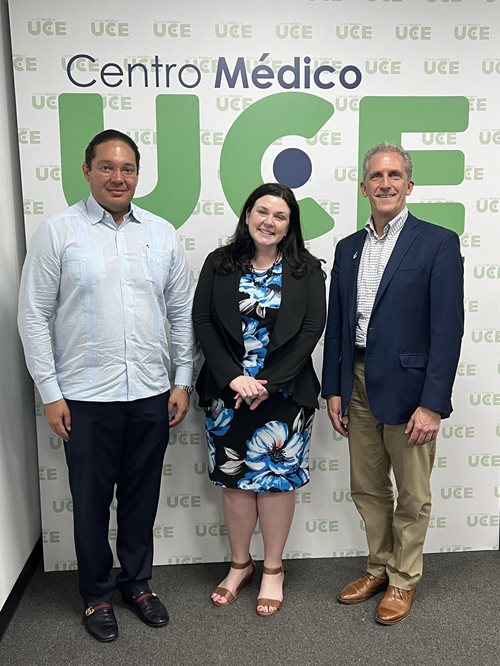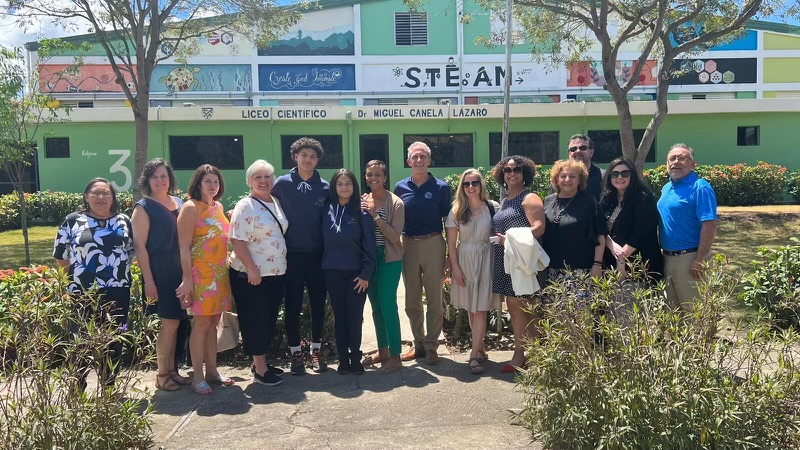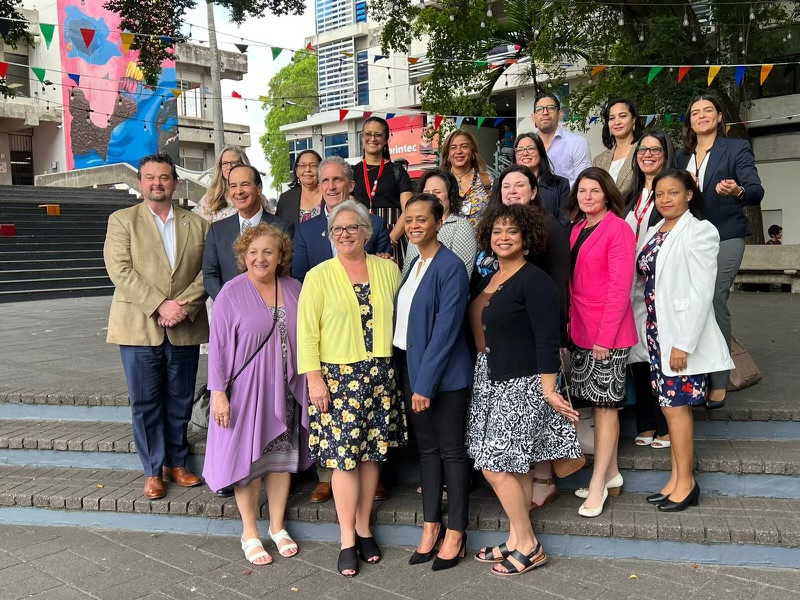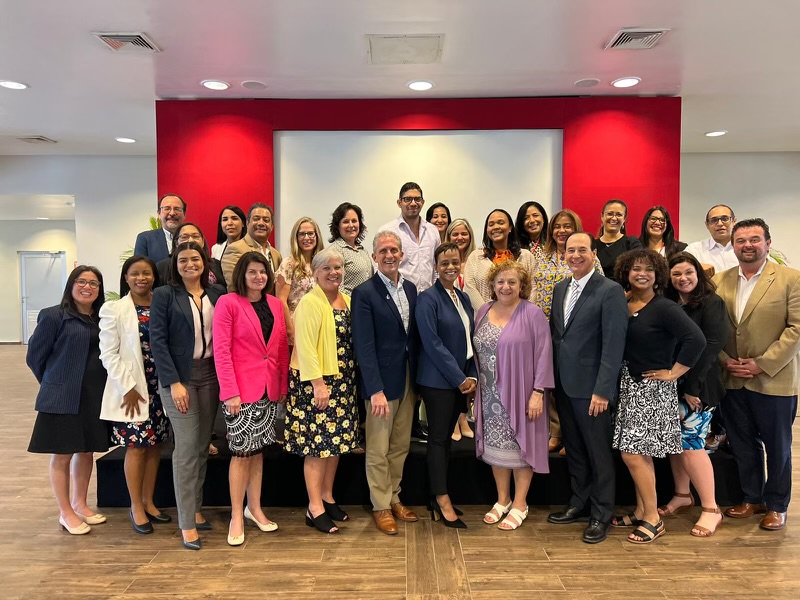
When most people pack their bags for a trip to the Dominican Republic, it’s with the intention of sun, fun, and relaxation. Lawrence General’s Interim President and Chief Operating Officer Robin Hynds, however, went to the Caribbean island with a mission in mind: To meet with the country’s top leaders and tour medical facilities to learn more about the Dominican culture to improve patient care and support workforce development here at home.
Hynds took part in a cultural immersion trip set up by Northern Essex Community College at the end of March. Since the inception of the NECC cultural immersion program in 2016, 50 educators and community members have participated. The trip was organized by NECC President Lane Glenn, also a member of LGH’s Board of Trustees, and NECC’s Dr. Noemi Custodia-Lora, vice president of the college’s Lawrence campus and community relations. Joining Hynds on the trip were representatives from the Essex County Sheriff’s Office, the Lawrence Partnership, AgeSpan, and Haverhill Public Schools, among others.
“It was an honor to be asked to be asked to be part of the community of people who went,” Hynds said. “Northern Essex works really hard to make sure it’s meaningful to the people who go and that there’s really good ways in which partnerships can emerge from the trip.”
Hynds said she went on the trip to boost recruitment efforts and zero in on new ways to deliver patient care to a diverse patient population. An LGH priority in the coming years, Hynds said, is to develop a pipeline to bring nurses and other medical personnel from the Dominican Republic to Lawrence General.
“We went there to talk about the ways to create pipelines for nurses or physicians to either to come to this country to learn or permanently to work,” Hynds said. “(Hospitals there are) looking to partner with locations in the United Sates to get their students the rotations they’re looking for.”
Hynds visited local hospital Centro Médico Universidad Central del Este — calling it “comparable” to Lawrence General in geographic location and type of care provided — and met with hospital president José Hazim Torres.
While there, she learned that there is a nursing shortage just as there is in the United States, but that health care is a popular career path. Medical personnel from the Dominican Republic have come to the U.S. through residency programs with places like the BronxCare Health System in New York, for example, Hynds said.
“There’s motivation not only to provide education for their students to get what they need for medical assistance in the country, but also to get people to work in the U.S.

,” Hynds said. When the Northern Essex group visited a local public university, there were 8,000 nursing students enrolled in its program, she added.
During a conversation with Dominican Senator Faride Raful, Hynds said she learned that residents in that country are often provided for by others who leave the Dominican Republic and sometimes send money back to their relatives.
Dominican migration to the United States first became noticeable in the 1960s following Rafael Leonidas Trujillo’s 30-year dictatorship. By the 1980s, the island was in economic distress and the Dominican population in the U.S. rapidly increased. According to the Boston Development Authority’s 2017 estimate, 132,864 Dominicans live in Massachusetts – 7% of all Dominicans in the U.S. Massachusetts has the fourth-largest Dominican population behind New York, New Jersey, and Florida.
Hynds hopes a partnership could come through Lawrence General’s hospitalist program, which places international students for rotations, or through possible partnerships with Greater Lawrence Family Health Center. Any medical education for nurses could be obtained in partnership with Northern Essex, Hynds predicted.
“I do see there’s a vision and potential,” Hynds said. “There are lots of opportunities to be creative.”


